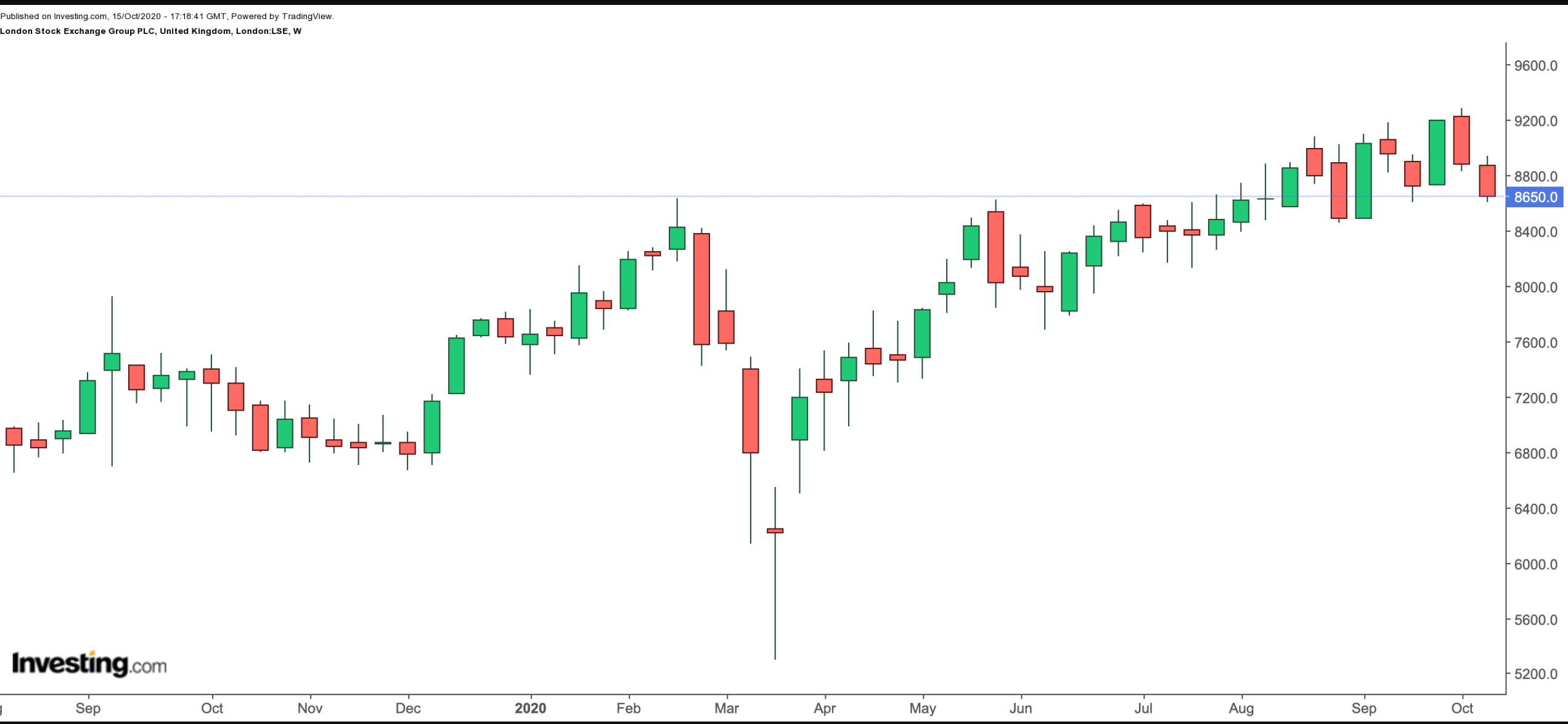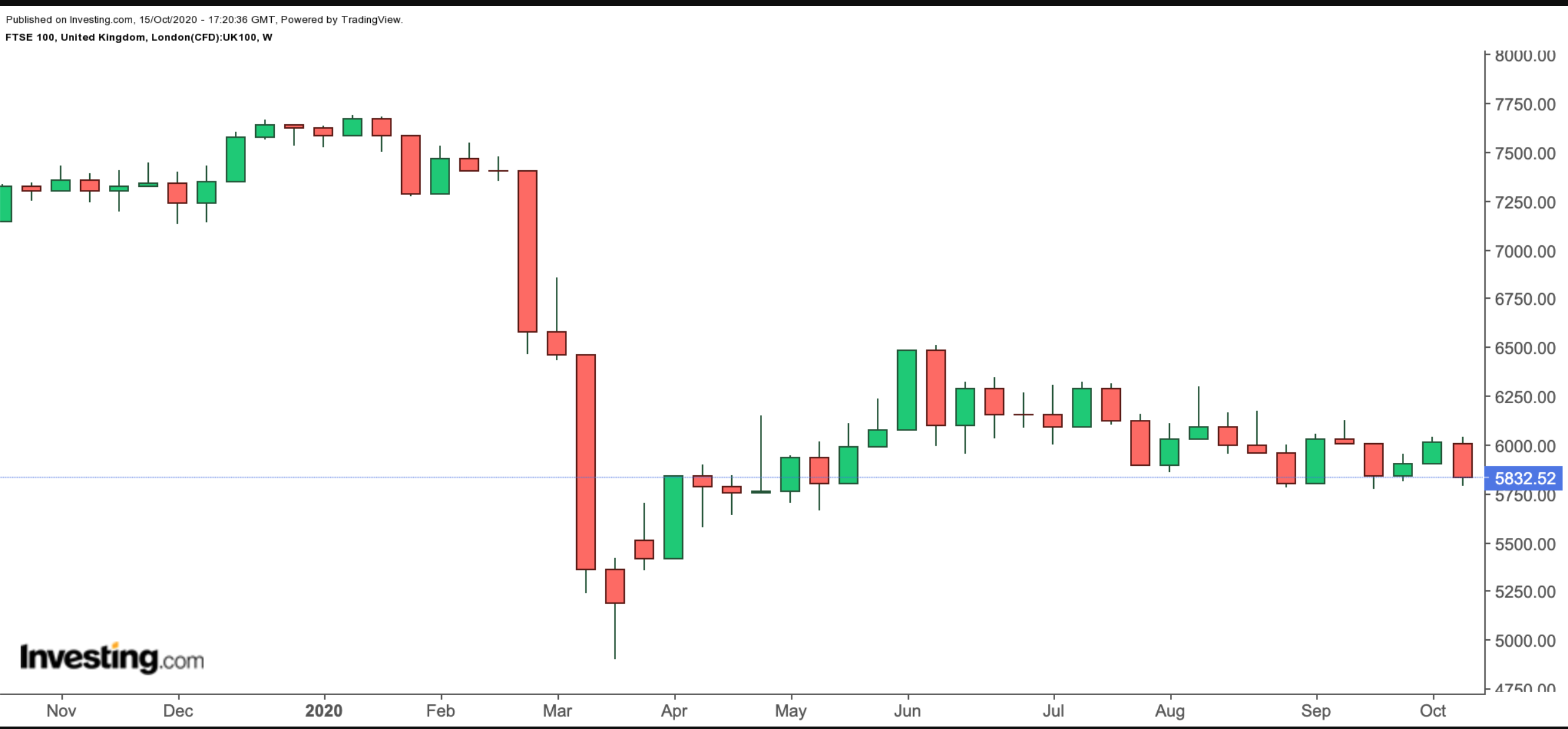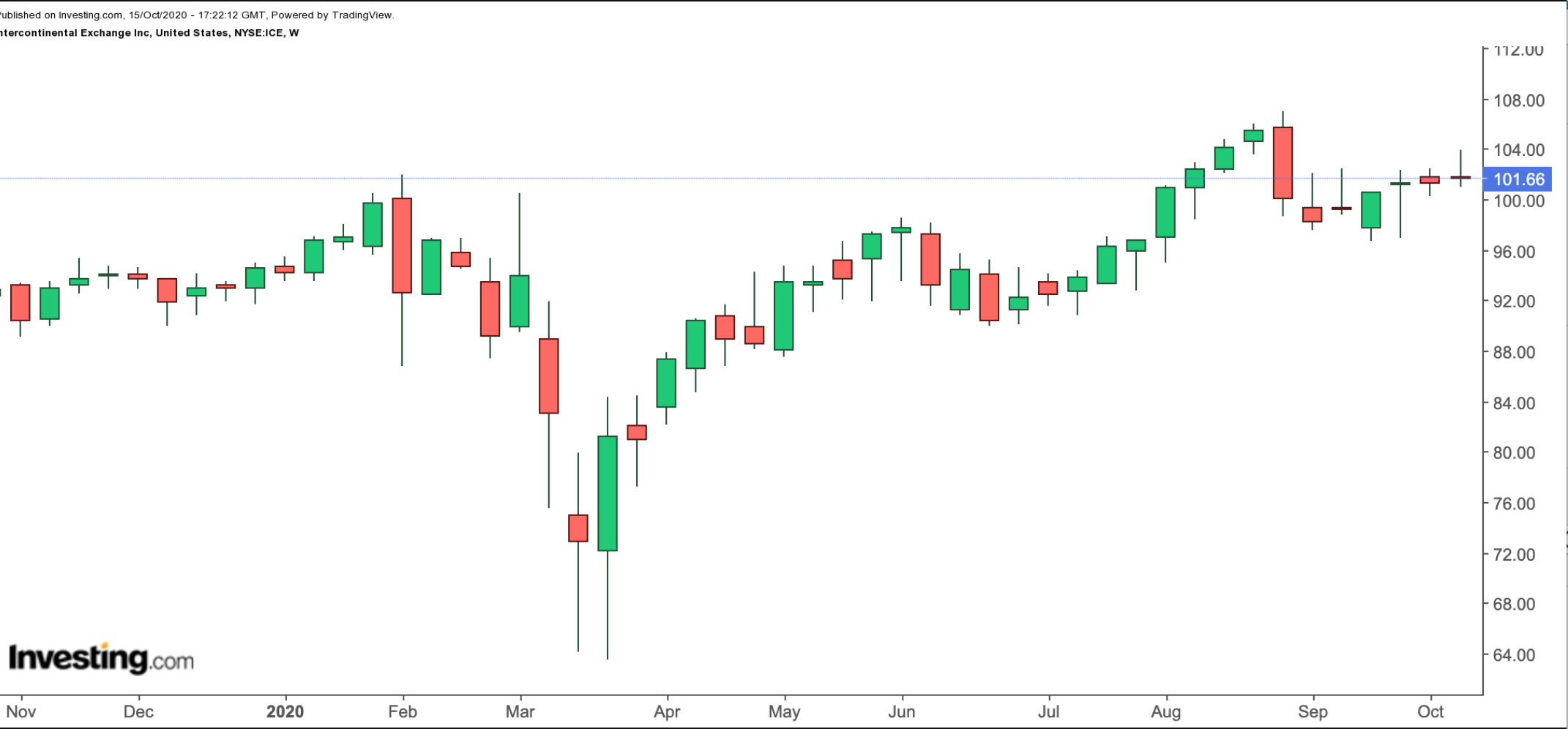Another choppy week in the equity markets is about to end, making investors wonder which shares will hold up well in the coming weeks. Today, we highlight a FTSE 100 member likely to benefit from increased volatility in the markets, namely, the London Stock Exchange Group (LON:LSE) (OTC:LNSTY).
London Stock Exchange Group describes itself as "a global financial markets infrastructure business." It is best known as the operator of the London Stock Exchange, Europe's largest stock exchange, with a history that goes back to 1698.
On Oct. 15, LSE stock closed at 8,650p (or $28.91 for U.S.-based shares). So far this year, the stock is up 12%. Since the lows seen in early spring, the shares have returned more than 63%. Put another way, heightened volatility in the markets has meant increased business volumes for the group.

By comparison, the FTSE 100 is down 23%.

Let's now take a closer look at LSE stock.
How H1 Interim Results Came
In late July, LSE announced interim results for the six months ended June 30 (H1). Total revenue was £1.06 billion (or $1.37 billion), an increase of 4% year-on-year (YoY). Total income came in at £1.24 billion (or $1.6 billion), up 8% YoY. Profit after tax was £261 million ($337 million), down 1.5% YoY.
The group drives revenue from three main segments:
- Information Services (about 41.3% of revenue, up 5% YoY)—includes mostly FTSE Russell, the indexing, benchmarking and analytic services as well as market data and research services;
- Post Trade (about 35.1% of revenue, up 9% YoY)—includes risk management services as well as various clearing houses and custody businesses;
- Capital Markets (about 20.5% of revenue, down 4% YoY)—includes the various international exchanges and markets it operates.
CEO David Schwimmer expressed his satisfaction with the results as well as confidence in the group's prospects. The board increased the interim dividend yield by 16%. As a result, the current annual yield stands around 0.8%.
Other Industry Peers
Investors may be interested to know that since the start of the pandemic-related volatility in equity markets, other companies have also been benefitting from increased trading levels.
Among the members of the FTSE 250, the UK's junior equity index, which is home to mid-capitalization businesses, are IG Group (LON:IGG) (OTC:IGGHY) and Plus500 (LON:PLUSP). Year-to-date, the shares are up about 10% and 70%, respectively. On the other hand, the FTSE 250 index is down 19%.
Stateside, we'd like to bring another stock to your attention, i.e., Intercontinental Exchange (NYSE:ICE). The Atlanta-based group's history goes back to 2000, when it was set up as an electronic trading platform focusing on the energy markets. Over the past two decades, its operations have expanded significantly. For instance, it owns and operates the New York Stock Exchange (NYSE), among other trading venues, and offers clients market data.

Like LSE, in its Q2 results announced on July 30, ICE management highlighted the positive effect of increased trading volumes on revenue, which was up 8% YoY.
Two segments bring in ICE's revenue:
- Trading and Clearing (49% of revenue)
- Data and Listings (51% of revenue).
Readers may also be interested to know that since 2019, ICE offers physically-settled monthly Bitcoin futures contracts, options on the futures, cash-settled monthly futures contract for Bitcoin and cryptocurrency data feed. Due to the exchange's significant operations, we expect management to lead the way in offering other cryptocurrency and blockchain products in the coming years.
YTD, ICE stock is up close to 10%. Forward P/E and P/B ratios stand at 21.98 and 7.69. Potential investors may find a better margin of safety at around $90.
Bottom Line
It is next to impossible to know what broader markets may do in the short run. However, seasoned investors realize that there is likely to be a bull market in a sector at any given time. Those market participants who pay attention to macroeconomic and market trends, and conduct due diligence on companies will possibly find winning shares. This year has been a challenging time for equity markets. Yet, shares of several stock exchanges and brokerage platforms stand out.
